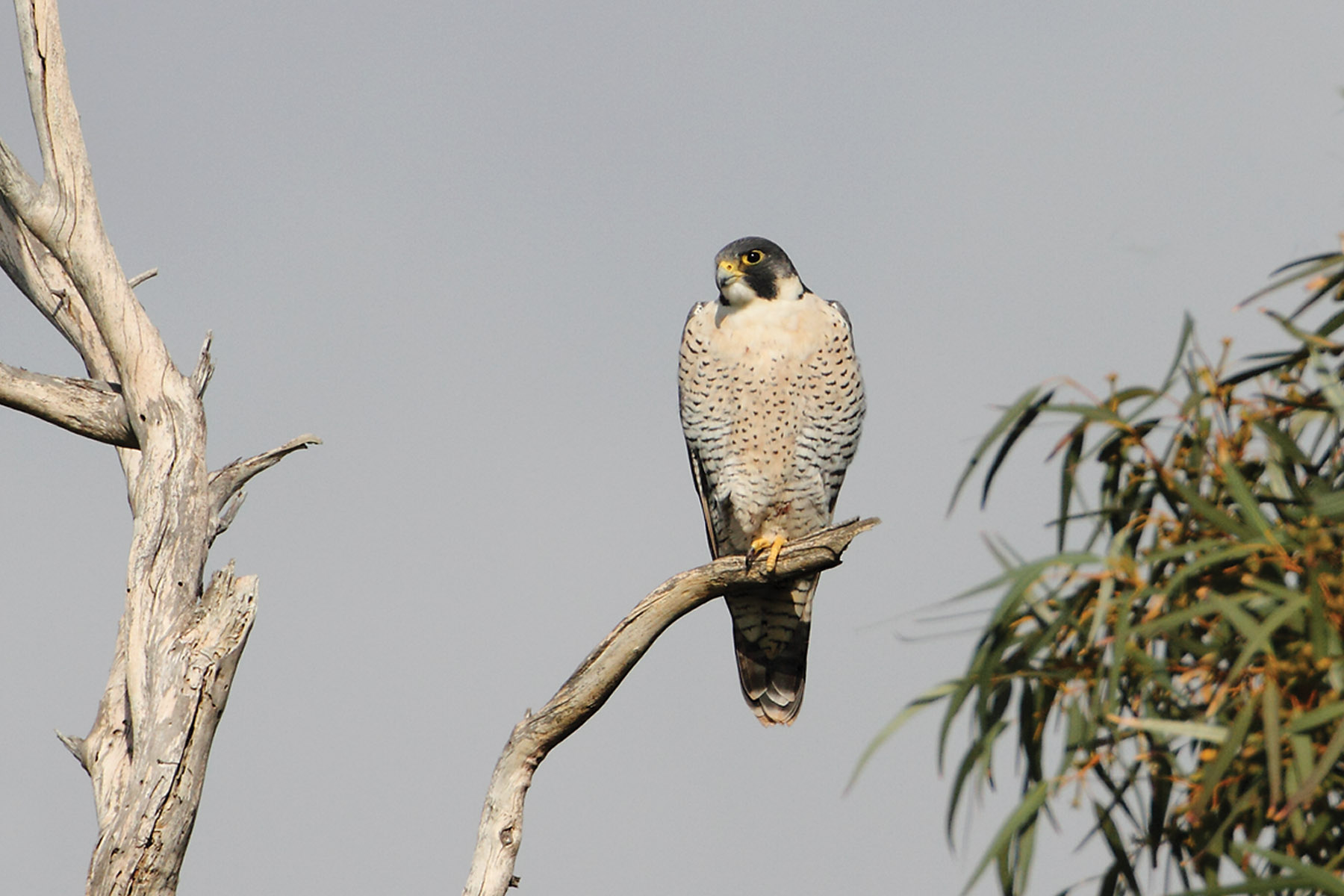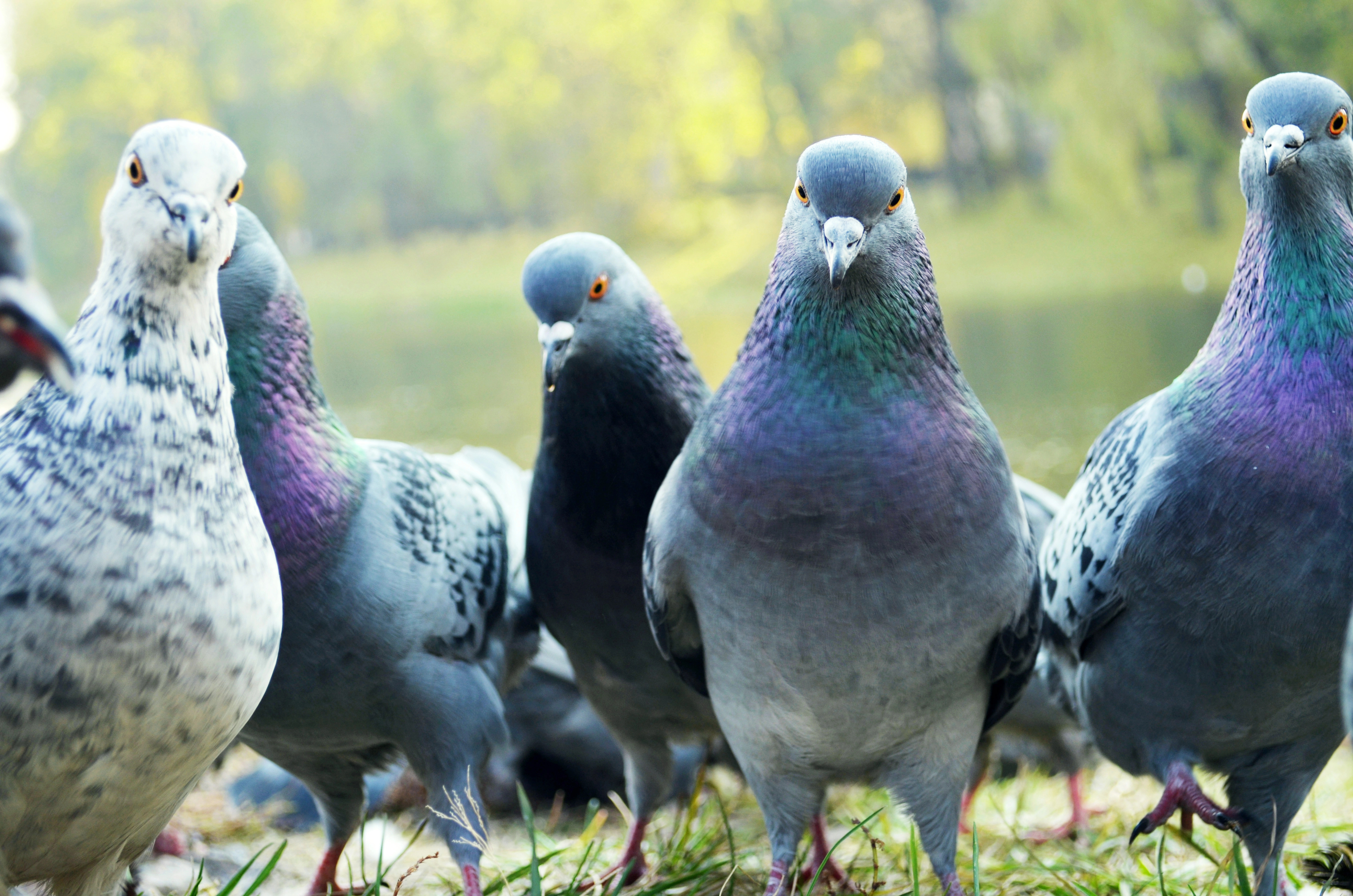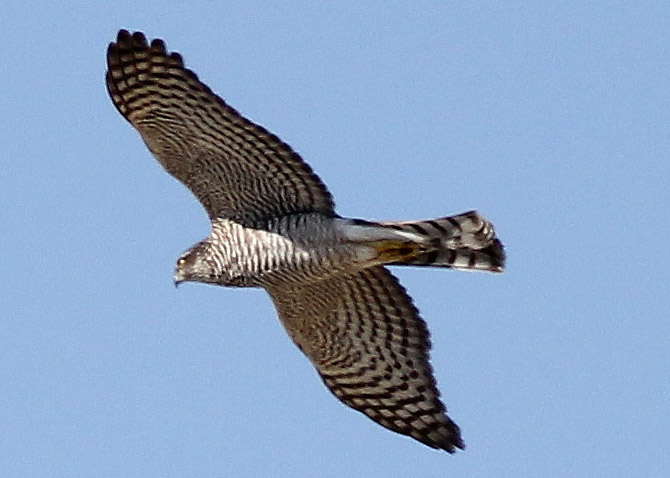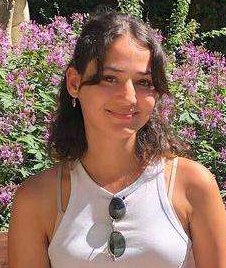Falconry: a mediaeval solution to a modern problem
In what might appear to be a return to the Middle Ages, Diko MP Chrysanthos Savvides suggested this week that the mediaeval practice of falconry should be legalised to stop ‘harmful’ birds, such as pigeons, disturbing farmers’ crops.
In presenting the bill, he argued that as various limitations on hunting and the change in attitudes over the years have prompted the growth of populations of crop-destroying birds, the reintroduction of trainers of natural predators – hawks and falcons – should be encouraged.
“As controlled hunting can’t be considered a solution, harmful birds were also found in private areas as well, making this even a bigger problem,” Savvides told the Cyprus Mail, adding that no actions have been taken for the problem farmers were facing with their crops
His proposal has won the support of farmers in the district, with representative Giorgos Ellinas having told the House environment committee that the pigeon population has “increased significantly, from the Kouklia area to Ayios Georgios in Peyia, with the result that the birds are eating vegetable and fruit crops”.
Additionally, he said, pigeons are causing “extensive damage” and even the “total destruction” of some crops as they search for food.
“The problem can’t be resolved traditionally by using hunting, thus the pigeon population increased in areas where hunting is not allowed, while the high number of trees in the area has also helped the pigeon population grow.”

Savvides pointed out the fact that falconry is an ancient sport practised by many cultures in the past and added that it’s also successfully practised in Greece as well.
Savvides’ proposal would see the agriculture minister of the day empowered to issue decrees to legalise falconry in specific areas, with the aim of controlling the population of wild fauna species which “cause damage to agricultural crops in areas where hunting is not permitted”.
He also urged that due to the important nature of the problem an effort should be made to promote the bill.
“In Paphos there aren’t a lot of hunting areas because of many isolated houses and for that reason the hunting service doesn’t allow hunting in many areas of the municipality,” Yiannis Demetriou Larnaca’s municipal secretary of the Farmers’ Union told the Cyprus Mail.
“We understand that there are a lot of isolated houses which makes it dangerous for hunting, although they could controllably increase the legal hunting areas of Paphos.”
Constantinos Antoniou, a wildlife vet and also one of two falcon trainers in Cyprus, explained how important proper training is for such a system to work.
“‘Harmful’ birds like pigeons have natural predators, and in falconry we use that natural fear of these birds to scare them away. However, by using other methods like traps the birds get used to them and as a result they aren’t effective, it’s the so-called habituation effect,” he told the newspaper.
He stressed for falconry to work correctly in Cyprus, the predators need to be trained appropriately.
“Research on the matter needs to be done to study what type of birds eat farmers’ crops and at what time of the day they do so, in order to use the appropriate type of bird predator,” Antoniou said.
Meanwhile, the two falcon trainers in Cyprus can’t do their job on site, because there is no law covering falconry in Cyprus, but there is outside support for such a law.
“We agree with the implementation of falconry through regulations, but that answer raises questions over how it is going to be done, how, etc.,” said Petros Anagiotos the representative of the Hunting Service.
“For example, it could be helpful, to minimise birds in airports, military bases, residential areas and close to farmer’s fields in the buffer zone,” he added.
Tassos Shialis, BirdLife’s campaign coordinator, was more cautious about the future of falconry.
“This proposal poses a serious risk to wildlife, particularly due to the risk of illegal possession and exploitation of these predatory species,” Shialis said.
He added that by implementing it without a strict regulatory framework, it poses risks to wildlife, such as trapping and illegal trade of protected birds on the black market, “which we estimate will increase as demand for such species used for poaching”.

Savvides countered this, saying the risk of the illegal use of hawks and falcons was slight at present as there are only two falcon trainers in Cyprus.
Shialis also raised another issue, explaining that predator birds used for falconry are domesticated and trained by trainers, something that could be problematic if they mate with wild birds, creating hybrids and causing additional problems to the Cypriot ecosystem.
He added that this method will just move the birds from one location to another, unless they move to hunting areas, where they would be minimised naturally.
He also pointed to environmental reasons for the decrease in predators such as the constant construction of roads and buildings.
“For that reason, the natural ecosystem gets reduced, and bird predators, like falcons end up having nowhere to nest their eggs.”
And then there is the cost.
“We believe by implementing this suggestion it will create further administrative, human and financial costs for the Game and Fauna Service, responsible for the management, of falconry,” Shiallis added.
In Cyprus of the Middle Ages, falconry was considered a sport for the nobility, it was the epitome of hunting methods and the ultimate way to capture prey. It was a status symbol.
Falconry was practised specially in the Mesaoria plain and the foothills of Troodos and Paphos forest. Strict laws and regulations and laws protected falconers and their birds such as the laws mentioned by the renowned John de Ibelin, the Crusader noble with close links to Cyprus. This suggests that the birds of prey, dogs and horses at the time were held in high esteem and were fiercely protected.






Click here to change your cookie preferences